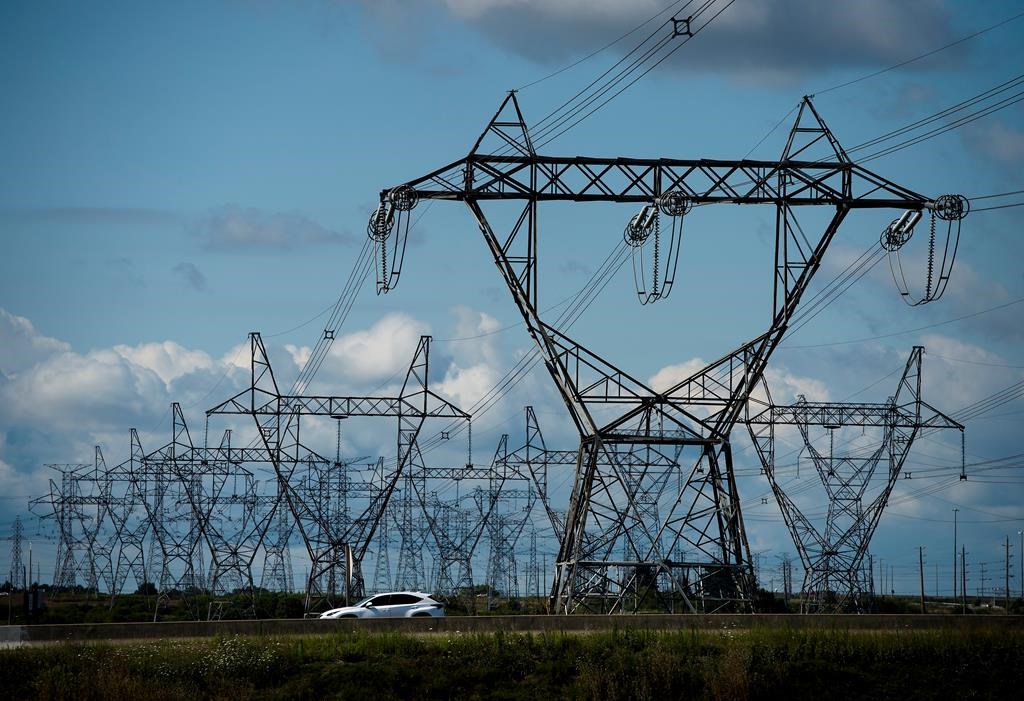Alberta reacts to Ottawa’s net-zero plans

Posted Aug 11, 2023 12:27 pm.
Last Updated Aug 11, 2023 12:28 pm.
The federal government released draft regulations for a net-zero grid in 2035 and the Alberta government is not happy with the draft.
Premier Danielle Smith released a lengthy statement in response to the announcement, saying in part: “One of the only positives at this point is that these are ‘draft’ regulations and Alberta is about to commence a working group with the federal government to discuss how to bring Ottawa’s efforts to decarbonize the economy in line with Alberta’s emissions reduction and energy development plan.”
The message was echoed in a news conference held by Alberta’s Minister of Environment and Protected Areas Rebecca Schulz, where she reacted to the draft.
“The draft regulations are unconstitutional, irresponsible, unrealistic and would make life less affordable for Albertans and Canadians they will not be implemented in our province — they can’t,” she said. “We are beginning our talks with the federal government and if we can’t get alignment, Alberta will chart its own path to ensure we have reliable and affordable electricity for the people we serve.”
Energy law expert Kristen Van De Biezenbos says the draft doesn’t seem to be unconstitutional and she suspects the regulations have been put forth under the Canadian Environmental Policy Act, which has been affirmed by the Supreme Court of Canada as being constitutional.
Related stories:
-
Federal government releases new draft regulations on clean electricity
-
Alberta needs ‘middle ground’ in renewable project development: experts
-
Alberta minister says federal strings on electricity climate funding a ‘threat’
-
Ottawa reveals conditions for allowing future fossil fuel subsidies
“That doesn’t mean that we wouldn’t see the current government bring a lawsuit to try to stop these regulations as being unconstitutional, they’ve certainly shown that they are willing to do it before they brought legal challenges against the carbon tax and against the Impacts Assessment Act, formerly Bill C-69, so they have certainly done it before and they may in fact do it again,” she explained.
The Calgary Climate Hub, a non-profit that wants Calgary to be a leader on climate action, applauds the release of the draft regulations.
“This is a really great step in a really pivotal moment in Canada’s action on climate, but you know this legislation is not finished yet — it still needs to go through it’s review and it still needs to get officially passed in the House of Commons,” said co-chair Robert Tremblay. “So we can celebrate today but this still needs to get over the finish line and it needs to get over the finish line quickly so that investors, activists, citizens have certainty of what clean electricity is going to provide both in Calgary and in Canada.”
The province’s official opposition also weighed in with a response.
“Alberta families are hurting and feeling the crunch of high-power bills,” said energy and climate critic Nagwan Al-Guneid in a statement. “Alberta businesses are focused on the creation of new, good-paying jobs and putting billions in new investments. We will be reviewing these regulations to determine the impact on reliability and affordability for consumers and policy certainty for businesses and investors.”








